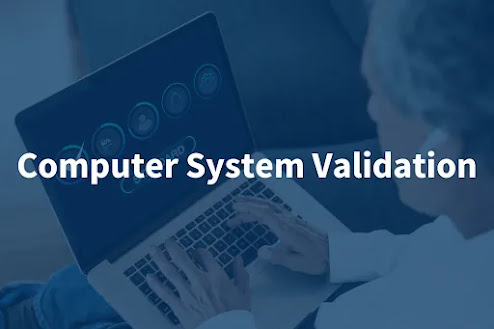Unlock Your Potential with CSV Certification - Here’s How
In today’s fast-paced world of technology-driven businesses, career growth requires staying ahead of the curve. One surefire way to unlock your professional potential is by taking specialized Computer system validation (CVS) certification courses. These courses not only teach technical skills but also establish a mindset focused on excellence, innovation, and compliance in professionals. Let’s delve into the importance of CSV certification, highlighting its pivotal role in boosting your career to new heights.
What are CSV certification courses?
CVS certification courses are
meticulously crafted programs focused on computer system validation. These
highly specialized courses serve as a necessary guide that provides
professionals with the knowledge and skills needed to navigate the labyrinth of
validating computer systems. Tailored to meet industry standards, these courses
play an important role in assuring the quality, reliability, and compliance of
vital IT systems. These courses provide you with a mixture of a technical or
scientific/ engineering degree and equip you with a sound knowledge of quality
control, especially in the pharma industry.
How Do They Help You Unlock Your Potential?
CVS certification courses
provide the training that helps you realize your full potential. CSV
certification courses enhance your potential by providing the expertise
required for professions such as Quality Assurance Analyst and software
validation with precision. As a Validation Engineer, you use your CSV skills to
ensure pharmaceutical safety. The certification broadens job options,
particularly in Healthcare IT, where thorough testing is vital. Let’s look at
the specific benefits these courses provide for career boosts.
- CSV Expertise - CSV certification courses offer a
thorough understanding of computer system validation. Graduates emerge as
experts capable of guaranteeing the integrity and compliance of crucial IT
infrastructure. The heightened level of competence is most important in
tasks that require precision and compliance with industry standards.
- Industry Relevant
Knowledge-
Having industry-relevant knowledge is crucial in today’s ever-changing
technological realm. CVS certification courses provide a thorough insight
into the latest practices, keeping the professionals up to date in their
game. This updated knowledge provides a competitive edge in today’s job
market.
- Opportunities for
Career Advancement- Career growth is synonymous with skill development. Computer
system validation training provides the door to a wide range of jobs,
from quality assurance employment to system implementation and validation.
It serves as a catalyst for moving up the professional ladder in
tech-driven sectors.
- Risk Mitigation Skills- Identifying and mitigating computer
system hazards is a key aspect associated with computer system validation.
CSV courses help professionals hone skills in identifying potential
pitfalls and implementing effective risk management measures. This skill
not only benefits the individual but also greatly adds to the overall
resilience of organizations.
- Problem-Solving
Skills- CSV
courses nurture problem-solving skills for computer system validation.
This is of utmost importance in tech-driven environments where unexpected
issues are unavoidable. Whether diagnosing system issues or monitoring
legal compliance, their expertise extends beyond validation, making them
adaptable professionals in such a dynamic field. Professionals with strong
problem-solving skills become great assets to their organizations.
Conclusion
Computer system validationcourse go beyond the standard education, serving as stepping stones to unlocking your
potential in the field of computer system validation. Let CVS certification
courses at Skillbee Solution help
you enhance your career. Take the first step today!


Comments
Post a Comment